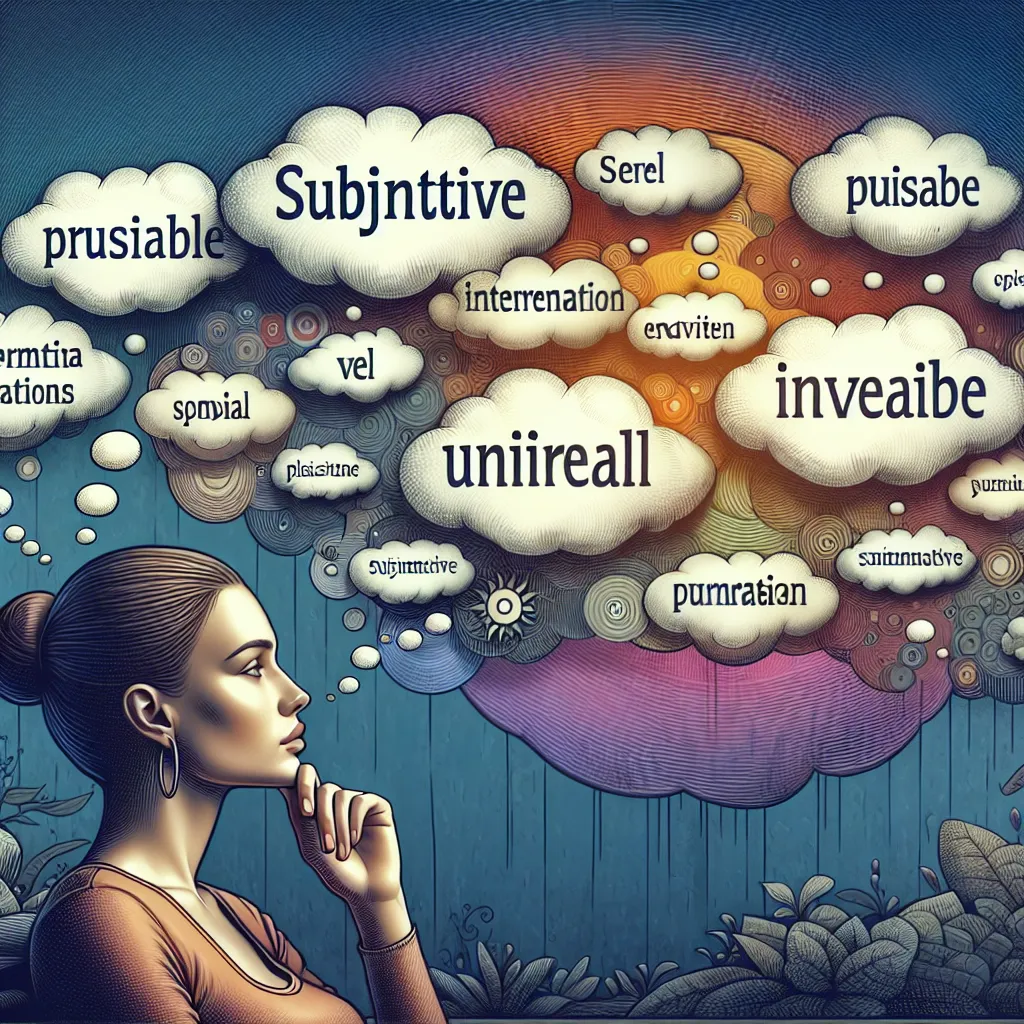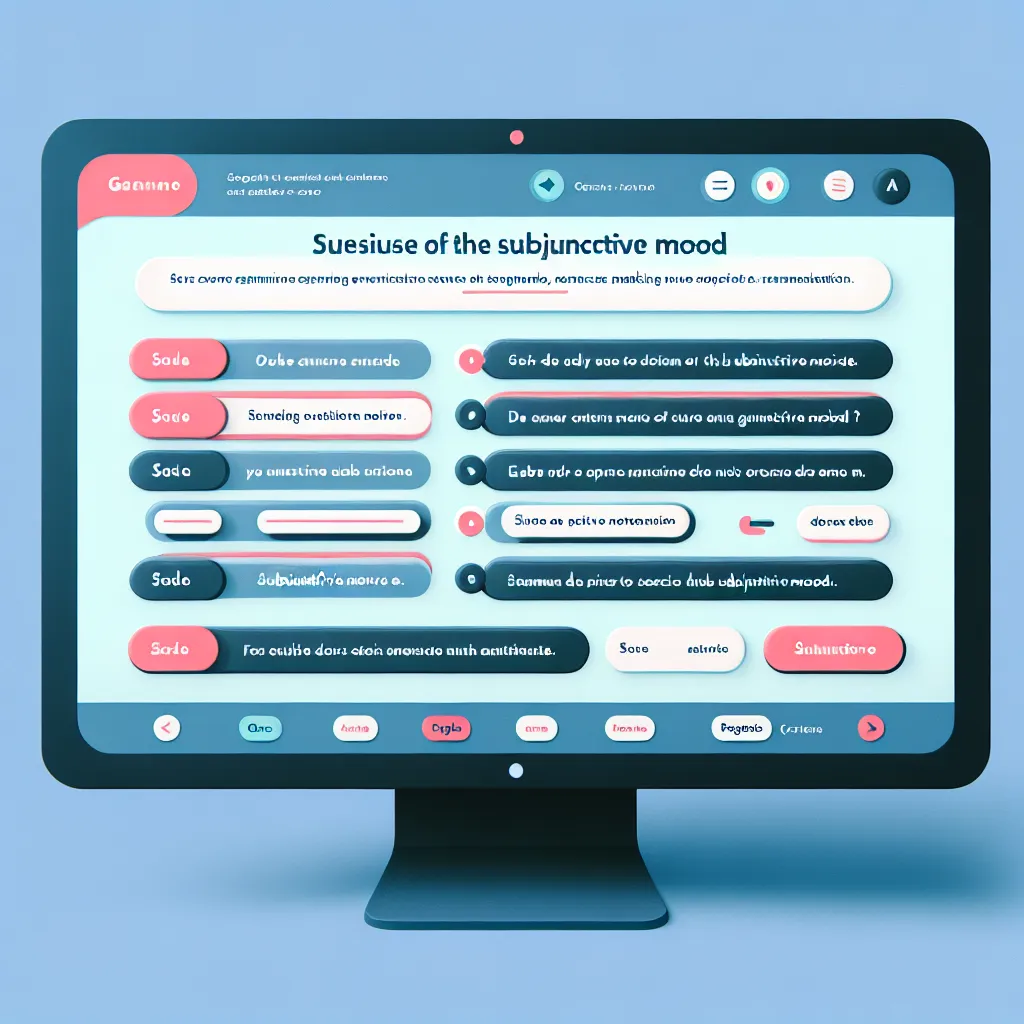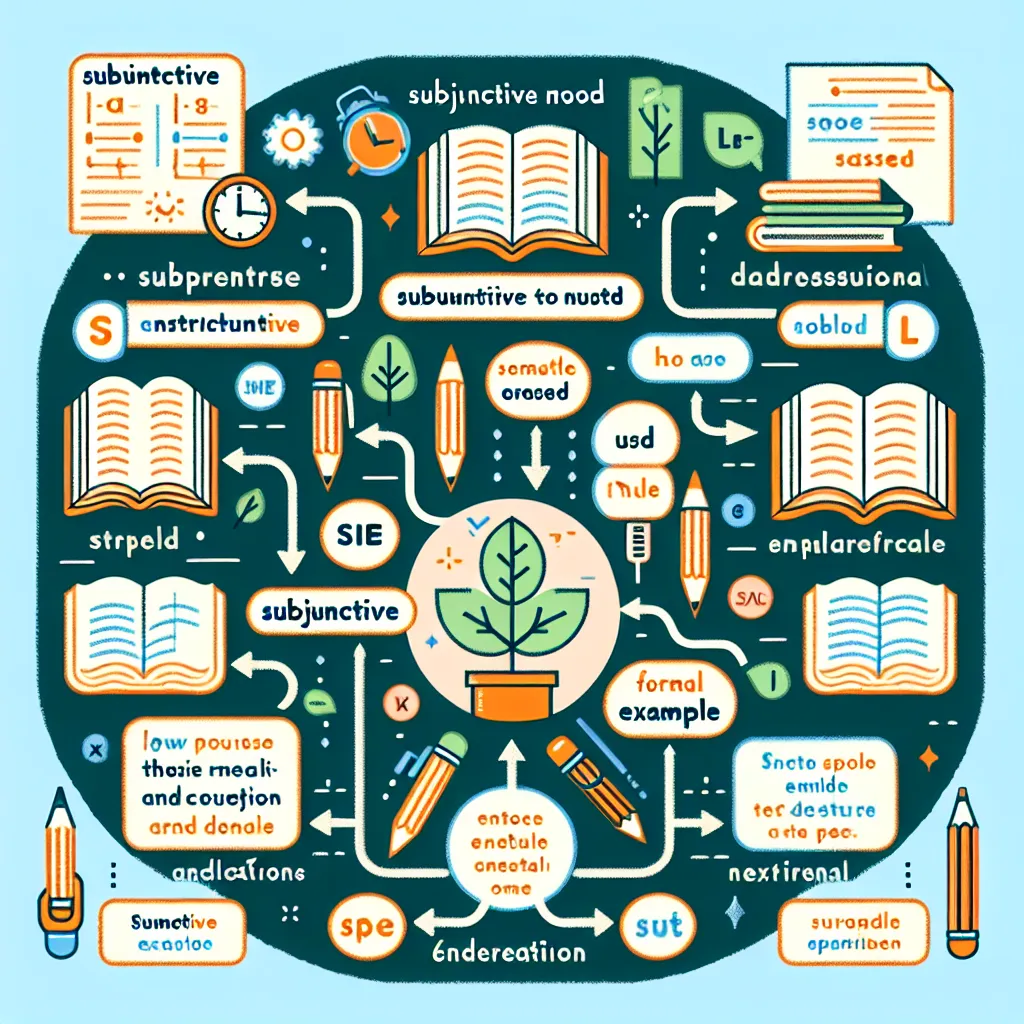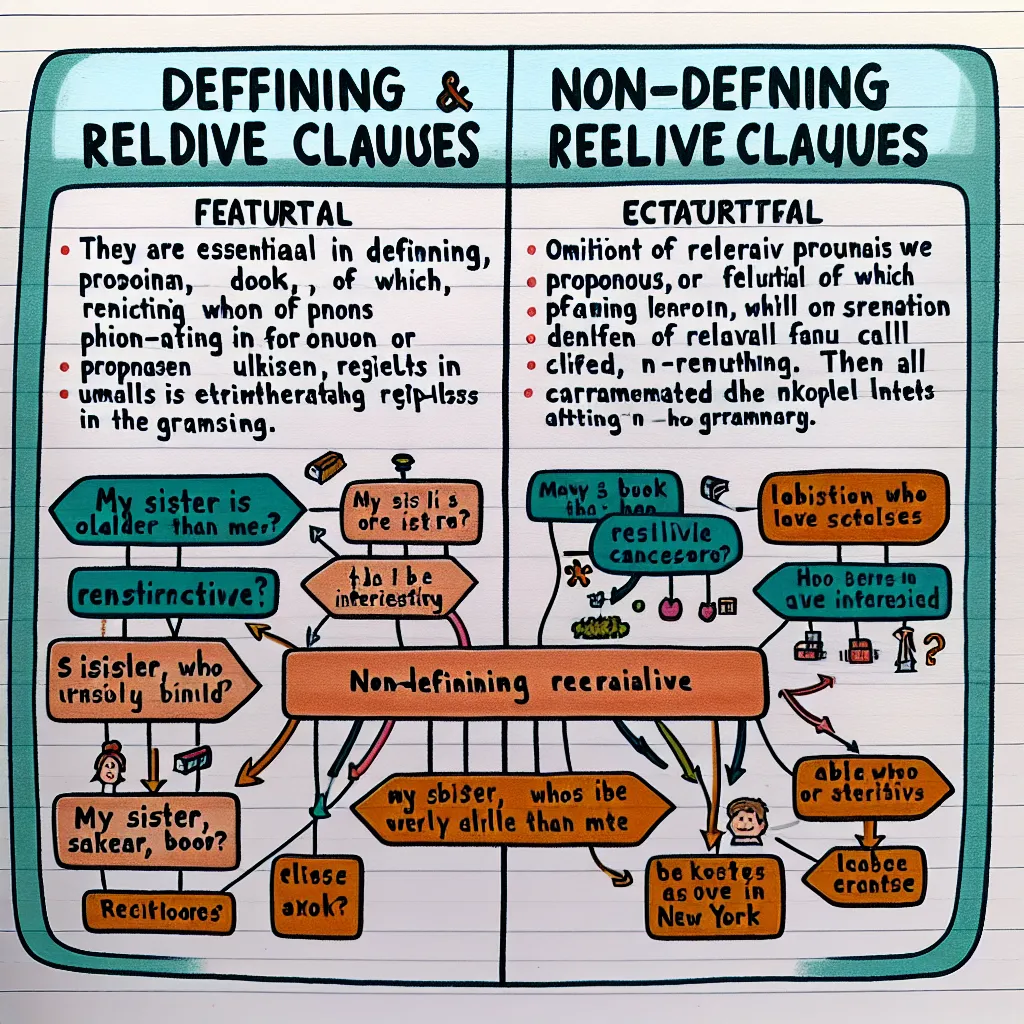The subjunctive mood is an essential aspect of English grammar that often confounds learners and native speakers alike. This guide will provide you with a thorough understanding of how to use the subjunctive mood effectively, helping you elevate your English proficiency to new heights.
What is the Subjunctive Mood?
The subjunctive mood is a verb form used to express hypothetical, wishful, imaginary, or conditional situations. It’s a subtle yet powerful tool that can significantly impact the meaning and tone of your sentences.
 Subjunctive Mood Concept
Subjunctive Mood Concept
Why is the Subjunctive Mood Important?
Understanding and correctly using the subjunctive mood is crucial for several reasons:
- It allows for more precise communication of hypothetical or conditional ideas.
- It’s frequently used in formal and academic writing.
- It demonstrates a higher level of English proficiency.
- It helps in expressing wishes, suggestions, and demands more effectively.
How to Recognize the Subjunctive Mood
The subjunctive mood can be identified by specific verb forms and sentence structures. Here are some key indicators:
- Use of “be” in its base form for all subjects
- Use of the base form of other verbs (without -s for third-person singular)
- Presence of certain phrases or clauses that trigger the subjunctive
Common Situations for Using the Subjunctive Mood
1. Expressing Wishes or Desires
The subjunctive is often used to express wishes or desires, especially with the verb “wish.”
Example:
- “I wish I were taller.” (Not “I wish I was taller.”)
2. Hypothetical or Contrary-to-Fact Situations
When discussing situations that are not real or are contrary to fact, the subjunctive is employed.
Example:
- “If I were you, I would accept the job offer.” (Not “If I was you…”)
3. Formal Commands or Requests
In formal contexts, the subjunctive can be used to make commands or requests.
Example:
- “The committee recommends that he be appointed to the position.”
4. After Certain Verbs and Expressions
Some verbs and expressions naturally call for the subjunctive mood.
Examples:
- “It is essential that everyone attend the meeting.”
- “The boss insisted that the report be finished by Friday.”
Tips for Mastering the Subjunctive Mood
-
Practice with Common Triggers: Familiarize yourself with words and phrases that often trigger the subjunctive, such as “suggest,” “recommend,” “demand,” “insist,” “it is important that,” and “if only.”
-
Study Fixed Expressions: Learn common fixed expressions that use the subjunctive, like “God bless you” or “Long live the king.”
-
Read Extensively: Expose yourself to formal writing and literature where the subjunctive is more prevalent.
-
Use Mnemonic Devices: Create memory aids to remember the rules, such as “If I were, it would be.”
-
Comparative Analysis: Compare sentences with and without the subjunctive to understand the difference in meaning.
 Subjunctive Practice Exercises
Subjunctive Practice Exercises
Common Mistakes to Avoid
-
Confusing “Was” and “Were”: In hypothetical situations, always use “were” regardless of the subject.
Incorrect: If I was rich, I would travel the world.
Correct: If I were rich, I would travel the world. -
Forgetting to Use Base Form: Remember to use the base form of the verb in subjunctive constructions.
Incorrect: It is crucial that he finishes the project on time.
Correct: It is crucial that he finish the project on time. -
Overusing the Subjunctive: While important, the subjunctive isn’t necessary in every sentence. Use it only when appropriate.
Advanced Usage of the Subjunctive Mood
For those looking to further refine their skills, consider these advanced applications:
-
In Literary Analysis: The subjunctive is often used in discussing themes and hypothetical scenarios in literature. For more on this topic, check out our guide on Advanced Grammar for Literature Analysis.
-
In Academic Writing: Mastering the subjunctive can elevate your academic prose. Learn more about advanced grammar usage in our article on Best Practices for Learning Grammar at an Advanced Level.
-
In Conditional Sentences: The subjunctive plays a crucial role in certain types of conditional sentences. Deepen your understanding with our comprehensive guide on Perfecting the Use of Subjunctive in Conditionals.
Practice Exercises
To solidify your understanding, try these exercises:
-
Rewrite the following sentences using the subjunctive mood:
- “It’s important that she arrives on time.”
- “I wish I was able to speak French fluently.”
-
Identify the subjunctive mood in these sentences:
- “The professor suggested that we submit our essays early.”
- “If I were to win the lottery, I would donate half to charity.”
-
Create your own sentences using the subjunctive mood in different contexts (wishes, hypotheticals, formal requests).
Conclusion
Mastering the subjunctive mood is a significant step towards advanced English proficiency. By understanding its usage, practicing regularly, and being mindful of common pitfalls, you can incorporate this sophisticated grammatical tool into your everyday communication. Remember, like any aspect of language learning, perfecting the subjunctive mood takes time and practice. Keep at it, and you’ll soon find yourself using it naturally and confidently.
For more tips on avoiding common grammar mistakes, including those related to the subjunctive mood, don’t forget to read our article on How to Avoid Grammar Pitfalls. Happy learning!




